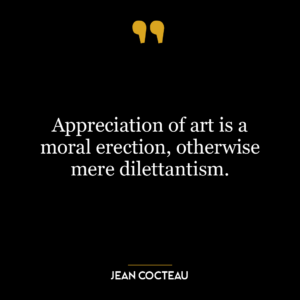Aristotle’s quote, “Why is it that all men who are outstanding in philosophy, poetry or the arts are melancholic?” suggests that there is a connection between melancholy, or a state of deep, reflective sadness, and the ability to excel in philosophical thinking, poetry, or the arts. This concept is based on the idea that those who possess an exceptional ability in these fields often have a heightened sensitivity or depth of perception, which allows them to see and understand the world in unique, profound ways. This depth of understanding, while it can lead to great works of art or thought, can also lead to a sense of melancholy, as it entails a deeper awareness of life’s complexities, contradictions, and inherent suffering.
In today’s world, this idea could be applied in the context of understanding the mental health struggles often faced by creatives and intellectuals. Many renowned artists, writers, and thinkers throughout history have experienced depression, anxiety, and other mental health issues, which could be seen as a modern reflection of Aristotle’s observation about melancholy. This doesn’t mean that all talented individuals are destined to be melancholic, but it does suggest that there might be a correlation between sensitivity, creativity, and mental health.
In terms of personal development, this quote could be interpreted as a reminder of the importance of emotional depth and sensitivity in fostering creativity and intellectual achievement. It could also serve as a cautionary note, highlighting the need for individuals with these traits to take care of their mental health, given their potential vulnerability to melancholy. It’s important to remember that while melancholy can fuel creativity, it’s not a prerequisite for it. It’s possible to lead a balanced, healthy life while still pursuing one’s artistic or intellectual passions.
















